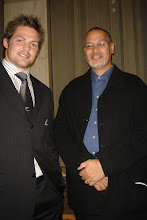 In the past students have often seen the whalers as an amorphous group. It is however important that you differentiate between the Ocean Whalers who frequented (mainly) the Bay of Islands and the Shore or Bay Whalers who were scattered about the coastline. Ocean Whalers originated mainly from the USA. Most came from New England. There were crews from Britain and France but the US dominated the trade.
In the past students have often seen the whalers as an amorphous group. It is however important that you differentiate between the Ocean Whalers who frequented (mainly) the Bay of Islands and the Shore or Bay Whalers who were scattered about the coastline. Ocean Whalers originated mainly from the USA. Most came from New England. There were crews from Britain and France but the US dominated the trade.When they needed some RnR they made for Kororareka. It offered everything they needed without the constraints of the law. Whaling crews numbered between 20-50 and there could be as many as 15 ships in the Bay at one time. New Zealand lay outside any of the European/American nations sphere of influence and thus beyond the reach of their legal systems. While this might have given the captains and crews a free licence to do as they liked, their behaviour was tempered by the fierce nature of the local Maori.
Nga Puhi controlled the
Some students find this concept distasteful, but we should be careful about applying 21st century morals on people from the past who operated in a completely different time with differing values. Maori simply viewed sex in a different way, and there was little stigma attached to the trade (although I don’t believe the daughters of chiefs would have been offered to a European unless there was a distinct material advantage to the Iwi.)
Whaling crews were ashore for only a few weeks while the ships were cleaned, refitted and supplies acquired. Many of the crew took an advance on their share of the profits, spending the money on rum and women. Some of the crew could often spend the better part of their wages during this shore leave and arrive back in
With no law in the town there was no limit on the behaviour of Europeans. Fighting and Drunkenness (and Drunken Fighting) were common. Behaviour was terrible and more cultured observers gave the town the name ‘Hellhole of the Pacific’. For many the town represented all that was bad about European culture and was to be abhorred.
Nga Puhi prospered under this regime. No other Iwi had as much access to Europeans and the goods they offered. This gave them enormous Mana within the wider area as well as their related Iwi north and south of the Bay.
Like other tribes many Nga Puhi took the opportunity to use the Whalers to travel overseas. Maori travelled widely around the Pacific, many landed in





Look, I've been here twice! Rejoice.
ReplyDeleteDid you visit flagstaff hill and the Flag pole Hone Heke cut down.... again and again and again. Did you read up to page 16 of the Handout?
ReplyDeleteIf you want to use names from other cultures and languages, please have the manners and scholarship to get the spelling correct. Parramatta, thanks.
ReplyDeleteBugger. Well spotted. Thanks.
ReplyDelete